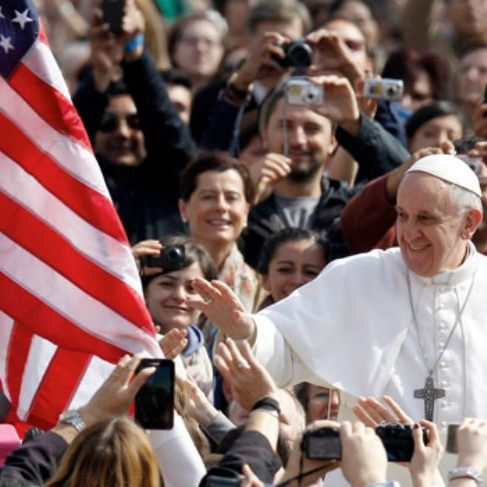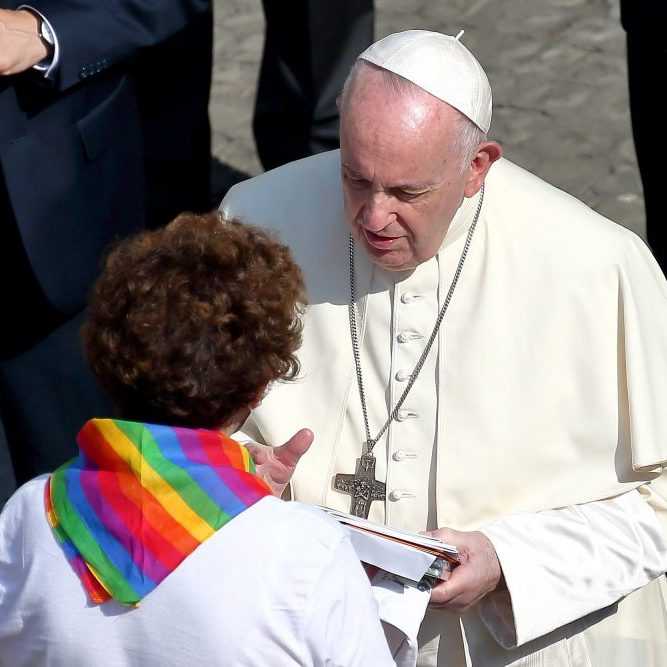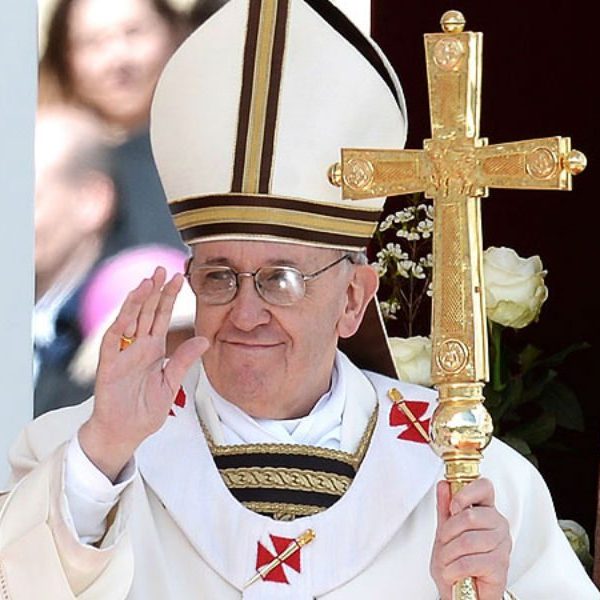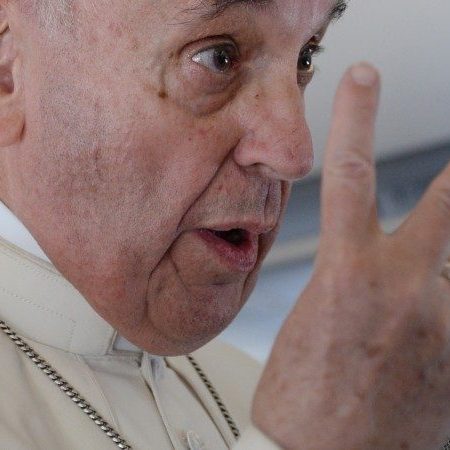
Rome shifts its position on LGBT couples.
The Human Rights Campaign (HRC), the nation’s peak LGBT civil rights body, has commended Catholic leaders meeting in Rome for using new, inclusive language in referring to the LGBT community. The document, released on October 13 by the Extraordinary Synod of Bishops, states that LGBT people have “gifts and talents to offer the Christian community” and, for the first time, referred to LGBT couples as “partners” instead of sinners.
The document, read to the Synod of Bishops, which is an advisory body for the Pope, says that the Church does not view same-sex unions as on the “same footing as matrimony between a man and a woman” but does state: “it has to be noted that there are cases in which mutual aid to the point of sacrifice constitutes a precious support in the life of the partners.”
Human Rights Campaign President Chad Griffin responded to the document with this statement:
“For the LGBT Catholics in the United States and around the world, this new document is a light in the darkness—a dramatic new tone from a Church hierarchy that has long denied the very existence of committed and loving gay and lesbian partnerships.”
The new language would reflect Pope Francis’ more compassionate view of LGBTs. Griffin said he hopes the message from the synod resonates well beyond Rome, especially in the U.S., where the Catholic Church is highly discriminatory against LGBTs. According to the HRC, there have been more than 40 reported cases of LGBT employees fired or let go by Catholic institutions because of their sexual orientation or gender identity since 2008.
“I hope the American Catholic bishops who have recently spent millions of parishioner dollars in political campaigns targeting their LGBT brothers and sisters are listening closely,” said Griffin.
“[T]he Vatican has heard the voices of Catholics around the world who see their faith as something that can include LGBT people, and honor their lives and relationships,” said Lisbeth Meléndez Rivera, HRC Foundation’s Director of Latino/a and Catholic Initiatives. “While this isn’t by any means a full acceptance of LGBT equality within the church, it’s a huge step toward making LGBT Catholics feel welcomed in their communities of faith, rather than approaching them with judgment,” she said.





